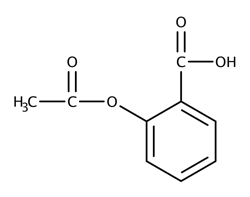Correlation in using both aspirin and famotidine and faring better with COVID-19
Early in the COVID-19 pandemic, doctors in Wuhan, China, noticed many of the elderly patients who survived the virus were poor, which is not the demographic group people would expect to fare well.
Reviewing the survivors’ medical records showed that many had chronic heartburn and were taking famotidine, which is the main ingredient of Pepcid. Wealthier patients tended to take the more costly drug omeprazole, which is the main ingredient in Prilosec.
Biomedical engineering professor Phil Bourne, the founding dean of the University of Virginia’s School of Data Science, said typically, to find out whether a drug is effective in treating a particular medical condition, scientists develop prospective clinical trials. However, this method is expensive and can take years.
Bourne and UVA Senior Scientist Cameron Mura worked with an international team of researchers to analyze information from a database that holds the medical records of millions of COVID-19 patients living in 30 different countries, narrowing it down to around 22,000 people.
The team’s analysis, which appeared in the journal Signal Transduction & Targeted Therapy, showed that the data supported findings from other smaller-scale studies. When delivered at high doses (the equivalent of about 10 Pepcid tablets), famotidine appears to improve the odds of survival for COVID-19 patients, especially when it is combined with aspirin. It also seems to hinder the severity of disease progression, making patients less likely to reach the point where they require intubation or a ventilator.
One of the most dangerous phenomena COVID-19 can trigger in the body is something called a cytokine storm, which is a potentially fatal amplification of an immune response.
The team’s theory is that famotidine suppresses that reaction. Although it was developed with a specific purpose in mind — blocking the histamine receptors that help produce acid in your stomach — famotidine, like all other medications, can cause side effects. Mura and his colleagues believe that interfering with cytokine storms might be one of them.
But the team’s findings are far from conclusive. Other studies have offered conflicting pictures of what famotidine can do for COVID-19 patients; some have found that it has a neutral effect, and one study has even suggested that it might be detrimental. Mura, Bourne and their colleagues recently published a review of existing research on the subject, along with suggestions for a framework that could help reconcile the contradictory reports.

